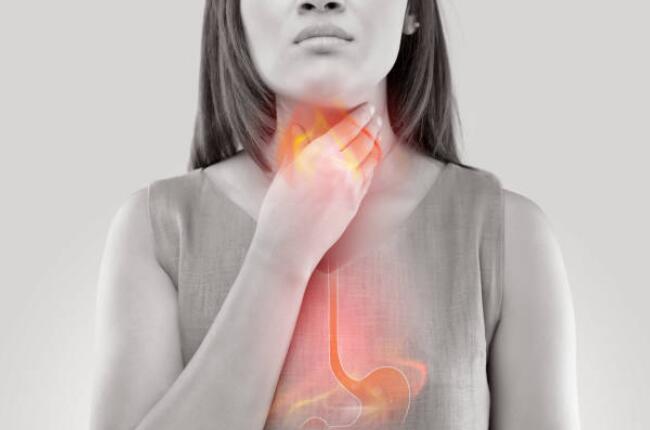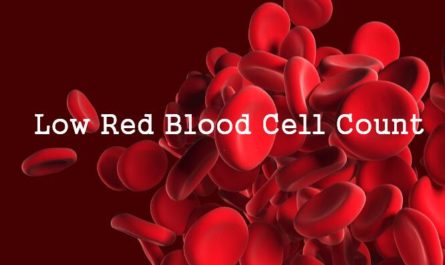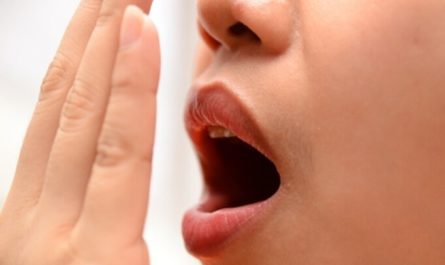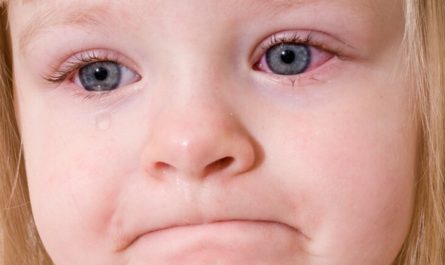Dry cough and fatigue are two common symptoms that often occur together. It may make you feel exhausted and uncomfortable. While these symptoms may seem minor, they can be indicative of various underlying health conditions. In this article, we’ll explore 15 common causes of dry cough and fatigue. Understanding the potential causes of your dry cough and fatigue is crucial for seeking appropriate treatment.

15 Common Causes of Dry Cough and Fatigue
1. Viral Infections
One of the most common causes of dry cough and fatigue is viral infections, such as the common cold, flu, or COVID-19. These illnesses can cause inflammation in your respiratory tract, leading to a dry, irritating cough. They can also zap your energy, leaving you feeling tired and run down.
Symptoms of viral infections may include:
- Fever
- Muscle aches
- Runny nose
- Sore throat
- Headache
- Loss of taste or smell (especially with COVID-19)
To combat viral infections, focus on rest and hydration. Drink plenty of water, herbal tea, and clear broths to soothe your throat and keep your body hydrated. Get enough sleep to help your immune system fight off the infection.
2. Allergies
Allergies can also trigger a dry cough and fatigue. When you’re exposed to allergens like pollen, dust mites, or pet dander, your body releases histamine. This can cause symptoms like coughing, sneezing, and itchy eyes. Allergies can also make you feel tired, as your body works hard to fight off the allergens.
Symptoms of allergies may include:
- Sneezing
- Runny or stuffy nose
- Itchy eyes, nose, or throat
- Watery eyes
- Fatigue
To manage allergies, try to identify and avoid your triggers. Keep your home clean and dust-free, and consider using an air purifier. Over-the-counter antihistamines can also help relieve symptoms.
3. Asthma
Asthma is a chronic lung condition that can cause dry cough, wheezing, and shortness of breath. When your airways become inflamed and narrowed, it can be difficult to breathe, leading to fatigue.
Symptoms of asthma may include:
- Wheezing
- Shortness of breath
- Chest tightness or pain
- Trouble sleeping due to coughing or wheezing
- Fatigue
If you suspect you have asthma, talk to your doctor. They may prescribe an inhaler or other medications to help manage your symptoms. Avoiding triggers like smoke, pollution, and strong odors can also help.

4. Gastroesophageal Reflux Disease (GERD)
GERD, also known as acid reflux, can cause a dry cough and fatigue. When stomach acid flows back into your esophagus, it can irritate your throat and cause coughing. GERD can also disrupt your sleep, leading to daytime fatigue.
Symptoms of GERD may include:
- Heartburn
- Chest pain
- Difficulty swallowing
- Regurgitation of food or sour liquid
- A sensation of a lump in the throat
To manage GERD, try eating smaller, more frequent meals and avoiding trigger foods like spicy or fatty dishes. Don’t lie down right after eating, and consider elevating your head while sleeping. Over-the-counter antacids can also provide relief.
5. Postnasal Drip
Postnasal drip occurs when mucus from your sinuses drips down the back of your throat, causing a tickling sensation that can trigger a dry cough. This constant irritation can also make you feel tired and run down.
Symptoms of postnasal drip may include:
- Feeling the need to constantly clear your throat
- Sore or scratchy throat
- Cough, especially at night
- Bad breath
- Nausea
To combat postnasal drip, stay hydrated and use a humidifier to keep your nasal passages moist. Saline nasal sprays can also help thin mucus and make it easier to drain. If your postnasal drip is caused by allergies, managing those triggers can help.
6. Bronchitis
Bronchitis is an inflammation of the bronchial tubes, which carry air to your lungs. It can cause a persistent dry cough, chest tightness, and fatigue. Bronchitis can be acute (short-term) or chronic (long-term).
Symptoms of bronchitis may include:
- Cough
- Chest discomfort
- Fatigue
- Slight fever and chills
- Shortness of breath
Acute bronchitis is often caused by viral infections and typically resolves on its own with rest and self-care. Chronic bronchitis, however, is a more serious condition that may require medical treatment. If your symptoms persist, talk to your doctor.
7. Pneumonia
Pneumonia is an infection that inflames the air sacs in one or both lungs, causing cough, fever, chills, and fatigue. It can range from mild to severe and can be caused by bacteria, viruses, or fungi.
Symptoms of pneumonia may include:
- Cough, which may produce phlegm
- Fever, sweating, and chills
- Shortness of breath
- Chest pain when breathing or coughing
- Fatigue
- Nausea, vomiting, or diarrhea
If you suspect you have pneumonia, see your doctor right away. They may prescribe antibiotics or other medications to help clear the infection. Rest and hydration are also crucial for recovery.
8. Chronic Obstructive Pulmonary Disease (COPD)
COPD is a group of lung diseases, including emphysema and chronic bronchitis. That can cause airflow blockage and breathing problems. COPD can cause a chronic dry cough, shortness of breath, and fatigue.
Symptoms of COPD may include:
- Shortness of breath, especially during physical activities
- Wheezing
- Chest tightness
- Chronic cough, which may produce mucus
- Frequent respiratory infections
If you have COPD, your doctor may prescribe bronchodilators or inhaled steroids to help manage your symptoms. Quitting smoking, if you smoke, is also essential for managing COPD.

9. Medications
Certain medications, such as ACE inhibitors (used to treat high blood pressure), can cause a dry cough as a side effect. Some medications, like antihistamines or pain relievers, can also cause fatigue.
If you suspect your medications are causing your symptoms, talk to your doctor. They may be able to adjust your dosage or switch you to a different medication.
10. Dehydration
Dehydration can cause a dry, tickling cough and fatigue. When your body doesn’t have enough fluids, your mucus membranes can become dry and irritated, leading to coughing. Dehydration can also make you feel tired and sluggish.
Symptoms of dehydration may include:
- Thirst
- Dry mouth
- Fatigue
- Dizziness
- Dark-colored urine
- Infrequent urination
To prevent dehydration, aim to drink at least 8 glasses of water per day. If you’re exercising or spending time in hot weather, you may need even more. Avoid diuretics like caffeine and alcohol, which can contribute to dehydration.
11. Stress and Anxiety
Stress and anxiety can cause a variety of physical symptoms, including dry cough and fatigue. When you’re stressed, your body releases cortisol, which can suppress your immune system and make you more susceptible to infections.
Symptoms of stress and anxiety may include:
- Dry mouth
- Rapid heartbeat
- Shortness of breath
- Dizziness
- Fatigue
- Muscle tension
To manage stress and anxiety, try relaxation techniques like deep breathing, meditation, or yoga. Regular exercise can also help reduce stress and boost your energy levels. If your stress or anxiety is severe, consider talking to a mental health professional.

12. Sleep Apnea
Sleep apnea is a condition in which your breathing repeatedly stops and starts during sleep. This can cause a dry mouth and throat, leading to coughing. Sleep apnea can also cause significant daytime fatigue, as your body isn’t getting the restful sleep it needs.
Symptoms of sleep apnea may include:
- Loud snoring
- Gasping for air during sleep
- Waking with a dry mouth
- Morning headache
- Difficulty staying asleep
- Excessive daytime sleepiness
If you suspect you have sleep apnea, talk to your doctor. They may recommend a sleep study to diagnose the condition. Treatment options include lifestyle changes, such as losing weight and sleeping on your side.
13. Lung Cancer
In rare cases, a persistent dry cough and fatigue can be symptoms of lung cancer. Other symptoms may include chest pain, shortness of breath, and unexplained weight loss.
Symptoms of lung cancer may include:
- Cough that doesn’t go away or gets worse
- Coughing up blood or rust-colored sputum
- Chest pain that worsens with deep breathing, coughing, or laughing
- Hoarseness
- Unexplained weight loss and loss of appetite
- Shortness of breath
- Feeling tired or weak
If you have a cough that doesn’t go away or gets worse over time, see your doctor. They may recommend imaging tests, like a chest X-ray or CT scan, to look for abnormalities in your lungs.
14. COVID-19
The COVID-19 pandemic has brought attention to the many potential causes of dry cough and fatigue. COVID-19, caused by the SARS-CoV-2 virus, can cause a range of symptoms, including dry cough, fever, and fatigue.
Symptoms of COVID-19 may include:
- Fever or chills
- Cough
- Shortness of breath or difficulty breathing
- Fatigue
- Muscle or body aches
- Headache
- Loss of taste or smell
- Sore throat
- Congestion or runny nose
- Nausea or vomiting
- Diarrhea
If you suspect you have COVID-19, get tested and follow isolation guidelines to prevent spreading the virus to others. Rest, hydration, and over-the-counter medications can help manage mild symptoms but seek medical attention.
15. Heart Failure
Heart failure is a condition in which the heart doesn’t pump blood as effectively as it should. This can lead to a buildup of fluid in the lungs, causing a dry cough and fatigue.
Symptoms of heart failure may include:
- Shortness of breath
- Persistent coughing or wheezing
- A buildup of excess fluid in body tissues (edema)
- Fatigue and weakness
- Rapid or irregular heartbeat
- Reduced ability to exercise
- Swelling in the abdomen
- Lack of appetite and nausea
If you suspect you have heart failure, see your doctor right away. They may recommend medications, lifestyle changes, or surgical procedures to manage your condition.

Home Remedies for Dry Cough and Fatigue
1. Honey: Nature’s Cough Suppressant
Raw honey has been used for centuries as a natural cough suppressant. It contains anti-inflammatory and antimicrobial properties that can help soothe a dry, irritated throat and boost your immune system.
To use honey for your cough, try one of these methods:
- Take 1-2 teaspoons of raw honey directly
- Mix honey into warm water or tea
- Combine honey with lemon juice for an extra boost of vitamin C
2. Hydration: The Key to Relief
Staying hydrated is crucial when you’re dealing with a dry cough and fatigue. Drinking plenty of fluids helps keep your throat moist, prevents dehydration, and can thin mucus, making it easier to expel.
Some hydrating options include:
- Warm water
- Clear broths
- Herbal teas (such as chamomile, peppermint, or ginger)
- Electrolyte drinks (for more severe fatigue or illness)
3. Ginger: A Spicy Solution
Ginger is a popular natural remedy for many ailments, including dry cough and fatigue. It contains antimicrobial and anti-inflammatory compounds that can help fight off infections and soothe a sore throat.
To incorporate ginger into your home remedy routine, try:
- Drinking ginger tea (steep fresh ginger slices in hot water)
- Adding fresh ginger to your meals
- Taking ginger supplements (consult with your doctor first)
4. Salt Water Gargle: Simple and Effective
Gargling with salt water is a simple yet effective way to reduce throat inflammation and irritation caused by a dry cough. The salt helps draw out excess fluid from your throat tissues, reducing swelling and discomfort.
To make a saltwater gargle:
- Dissolve 1/2 teaspoon of salt in a cup of warm water
- Gargle the solution for 10-15 seconds
- Spit it out (do not swallow)
- Repeat several times a day

5. Steam Inhalation: Moisturize Your Airways
Inhaling steam is an excellent way to moisturize your airways and relieve a dry cough. The warm moisture can help loosen mucus and soothe irritated throat tissues.
There are two main ways to inhale steam:
- Take a hot shower and breathe in the steam
- Fill a bowl with hot water, lean over it with a towel draped over your head, and inhale the steam for 5-10 minutes
For added benefits, try adding a few drops of eucalyptus or peppermint essential oil to the water.
6. Licorice Root: An Ancient Remedy
Licorice root has been used for centuries to treat respiratory issues, including dry cough. It contains compounds that can help soothe the throat and reduce inflammation.
To use licorice root:
- Drink licorice root tea (steep dried licorice root in hot water)
- Take licorice root supplements (consult with your doctor first, as licorice can interact with certain medications)
7. Turmeric: A Golden Spice
Turmeric, a vibrant yellow spice commonly used in Indian cuisine, contains a compound called curcumin that has potent anti-inflammatory properties. This may help ease cough and fatigue by reducing inflammation in your throat and boosting your immune system.
To use turmeric for your symptoms:
- Add 1/2 teaspoon of turmeric to warm milk or tea
- Incorporate turmeric into your meals (such as curries, soups, or stir-fries)
- Take turmeric supplements (consult with your doctor first)
8. Peppermint: Cool Relief
Peppermint contains menthol, a compound that has a cooling, numbing effect on the throat. This can help reduce cough and soothe throat irritation.
To use peppermint for your dry cough:
- Drink peppermint tea (steep fresh peppermint leaves or a peppermint tea bag in hot water)
- Suck on sugar-free peppermint lozenges
- Inhale peppermint essential oil (add a few drops to a diffuser or bowl of hot water)
When to See a Doctor?
While many causes of dry cough and fatigue can be managed with self-care measures, there are times when it’s important to see a doctor. Seek medical attention if:
- Your cough persists for more than three weeks
- You’re coughing up blood or thick, discolored mucus
- You have a fever, chills, or chest pain
- You’re experiencing shortness of breath or wheezing
- Your fatigue is severe and interfering with daily activities
Your doctor can help determine the underlying cause of your symptoms and recommend the most appropriate treatment plan.






